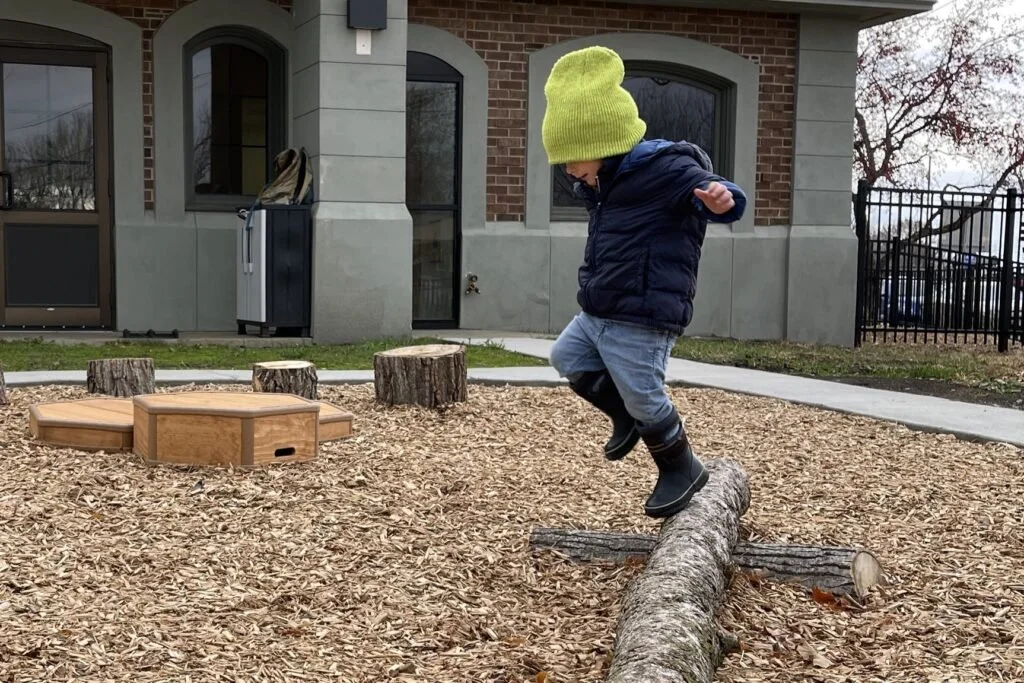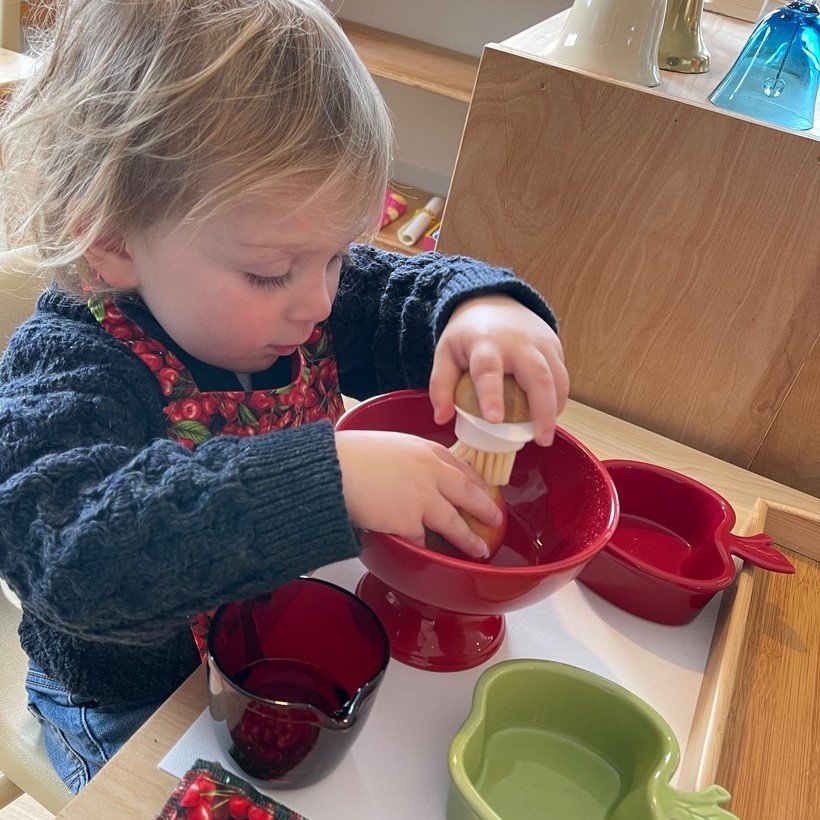Freedom and Discipline
What does your Guide mean when they refer to freedom and discipline in the Montessori environment? When the environment and the adults are prepared to offer children freedom with limitations, children are motivated to develop inner discipline. The result is a safe learning environment, where children feel secure while engaging with their work.
Guides facilitate four main freedoms in the prepared Montessori environment: the freedoms to move, to choose, to repeat, and to communicate. These freedoms must be given to children so they can construct their personalities and adapt to their communities. These freedoms come with limitations - guidelines - that are consistently and cooperatively upheld by the adults and the children. Limitations in a Montessori environment include:
using only those materials that have been presented,
not disturbing others' work,
not damaging materials, and
not using hurtful or inappropriate language.
Freedom of movement
Freedom of movement means children may explore freely, moving around the room when they need or want to. In the beginning of a child's experience in the environment,
we frequently observe children bumping into objects or people, or accidentally knocking things over. Sometimes objects get dropped or broken. All of these experiences offer critical feedback for children and naturally guide them toward deliberate control of their hands and their feet. As a result, children become aware that moving freely around the room requires paying attention to their surroundings and controlling their bodies. They learn not to disturb others in their work or cause harm to the environment. The foundation of boundaries is the needs of others and the environment.
Freedom of choice
Freedom of choice means children may choose their own work based on their interests and their knowledge. Children arrive at school with their own interests, but how do children gain knowledge of specific exercises? When children first enter the environment, the freedom to choose work is limited because their knowledge of the
materials is limited. To ease those limitations, the Guide will present many works to the children in their first weeks. When a Guide demonstrates using a set of materials, the guide actively transfers knowledge from adult to child. As children gain knowledge of materials, their options expand, which means their freedom expands. Knowledge increases freedom. New presentations of material continue regularly throughout a child's entire Montessori education.
Freedom to repeat
Young children are naturally driven to repeat newly learned skills. How many times has your child insisted on doing the same thing again and again and again? To adults, a child's need to repeat an action can sometimes appear funny, or inconvenient, or just odd. But actually, repetition is essential and beautiful. Repetition is evidence of the child's joy in acquiring a new skill and their natural drive to perfect their knowledge.
In a Montessori environment, children are free to repeat their works as many times as they feel necessary. The children are provided with uninterrupted work cycles--three hours in the morning and two hours in the afternoon--during which they may repeat. The schedule of work cycles is not dictated by the adults, but is driven by the children’s interests. There are no group centers or activities that are rotated based on timers or the adults' wills.
Freedom to communicate
A joyful Montessori environment is often described as sounding like a beehive: there is a harmonious buzz in the air. That buzz is the sound of children and adults transferring knowledge amongst each other.
As with the other freedoms, the freedom to communicate expands as knowledge expands. Have you ever tried to express a thought or idea, but just couldn't find the right words? Young children experience that continually because they are still working to acquire words. To support children’s acquisition and appreciation of language, the Guide uses rich, extensive vocabulary throughout the day.
Children have the freedom to engage in authentic conversations with others, which is important for the development of their social personalities and confidence. The adults in the environment facilitate conversations as well, modelling how to ask questions and wait for responses, and how to listen attentively to a story someone else may be sharing.
Just as children receive naturally occurring feedback about their movement, they also receive feedback about their communication. Positive, kind communication results in growing friendships. Conversation that is less than considerate can result in friends with sad expressions or even tears. Guides are present to help children navigate their freedoms deliberately and kindly and to demonstrate restoration of relationships when needed.
The result
So what is the product of all of this freedom, balanced by discipline? A developed will. Every time children choose their own work in the environment, they are strengthening their wills. A child's will is their ability to make constructive choices that benefit the development of their own inner discipline, as well as the needs of the community. By repeating their work as many times as they feel necessary, children experience the inner gratification of having completed the task to their satisfaction. Each freely made choice hones a child's ability to make decisions and drive their own education. When a child develops strength of will through freedom and discipline, they develop the ability to care for themselves, their relationships, and their environment.




